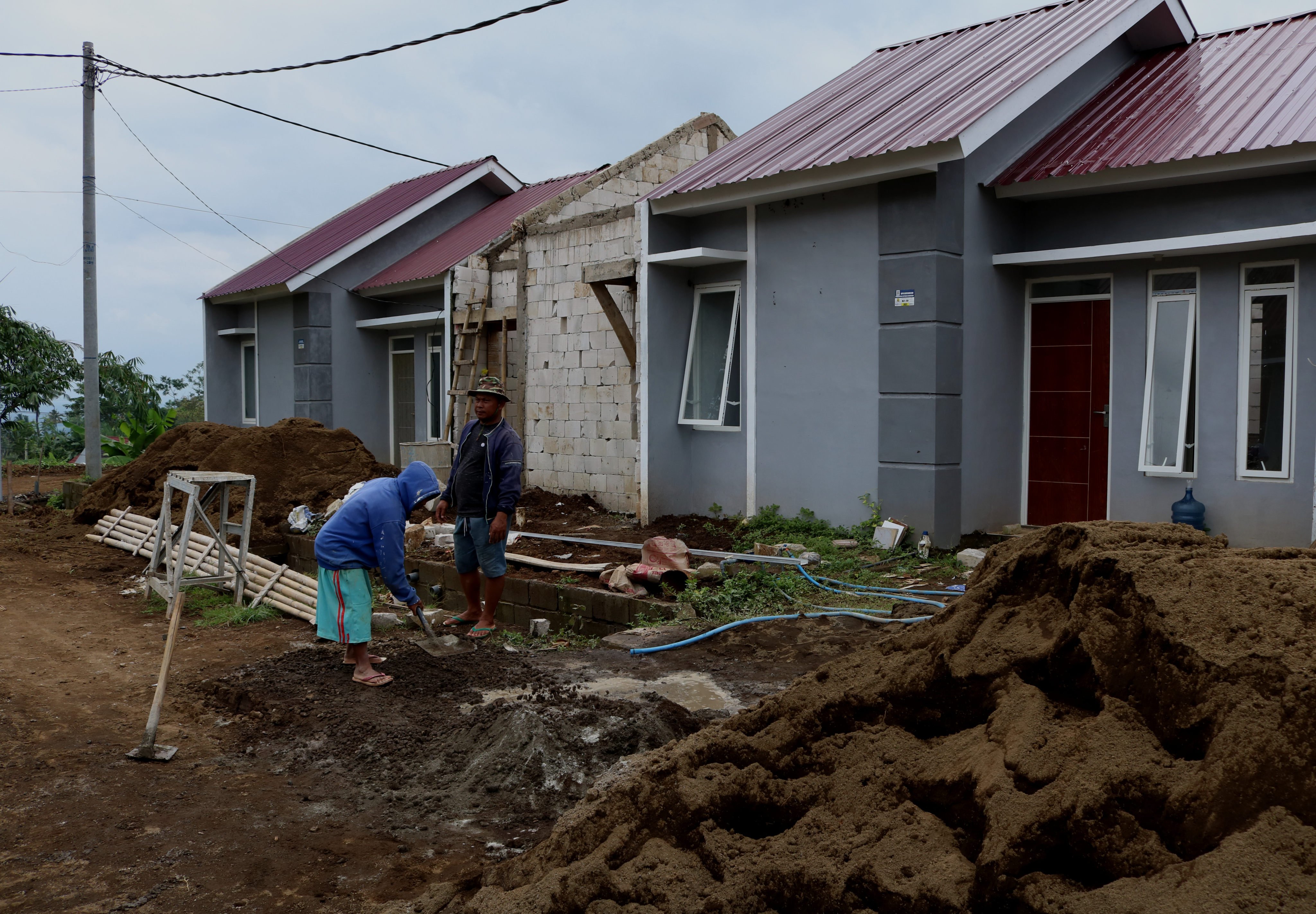A Qatari firm has pledged a US$2.5 billion investment to help Indonesia realise an ambitious affordable housing push, with plans to build 1 million homes over five years – a major contribution to President Prabowo Subianto’s broader pledge to construct 3 million new dwellings during his term.
The initiative is expected to face complex challenges – from securing land and managing construction costs to integrating housing with urban infrastructure – but officials and experts say these could be addressed with the right policies and partnerships.
On Thursday, Sheikh Abdulaziz bin Abdulrahman Al Thani, chairman of Qatar’s Qilaa International Group, announced that its Indonesian subsidiary would fund the construction of 100,000 homes in two phases as part of the broader target. A groundbreaking date has not yet been confirmed.
The initiative is part of the company’s commitment to build 1 million homes in total over the next five years, according to Hashim Djojohadikusumo, head of a task force set up by the government to oversee the affordable housing scheme.
“We finished all the drawings. We have all our partners to start this project. I hope we succeed very strongly in this project, and we see [the houses] on the ground,” Sheikh Abdulaziz told reporters in Jakarta on Thursday.
The construction would only begin after the company was granted licences by the government and once the land was ready, he said, adding that Qilaa International aimed to wrap the 100,000 houses “in two years”.
Sheikh Abdulaziz said he was not seeking profit through the project; rather, he aimed to build “community” for low-income residents where they could buy houses “with good price” but still enjoy facilities such as swimming pools, mosques and playgrounds.
“It’s not my first priority to make a profit, but it’s going to be profitable. We are working very strongly with our partners to get a good construction price,” he said, noting that in Indonesia, there was as yet no property project where developers built houses at low prices but with full facilities.
“What matters more to me is being on the ground and delivering this project.”
Hashim of the housing task force said the houses would be built on land owned by the central and regional governments, as well as some of the country’s 800 state-owned companies, including railway operator PT KAI and oil and gas company Pertamina.
The government was currently determining the locations and prices for the houses, Hashim said.
No foreign loans
Qatar will not be the only foreign investor involved in the housing scheme in the future.
“We have been talking to people from the United Arab Emirates, India, Turkey, China, Japan and Singapore,” Hashim said, responding to a question by This Week in Asia.
The level of interest in these countries to invest in the scheme was “very high”, he said.
“We sympathise with our friend in Qatar, we appreciate it. The fact that the Sheikh is here, we appreciate it. The programme has to go on. The other [investors] are also reliable,” he said.
Indonesia had also been talking to Singapore’s Housing and Development Board to seek consultation, he said.
On Thursday, Minister of Housing and Settlements Maruarar Sirait said he had cancelled plans to seek a loan from the Asian Development Bank (ADB), heeding Prabowo’s direction “to be self-reliant by choosing not to depend on foreign loans in the housing sector”.
ADB had offered a loan of US$138 million in February to support the affordable housing programme, a number that can be adjusted down the line.
Earlier this month, a financial lifeline came through the country’s sovereign wealth fund Danantara, which pledged 130 trillion rupiah (US$8 billion) for the scheme. State-owned banks will channel the fund via housing microcredit loans and commercial mortgage programmes.
The ministry earlier this month drew flak from the public over its plan to reduce the minimum plot size for subsidised homes, from 21 square metres (226 sq ft) of building to only 18 square metres.
A private developer, Lippo Group, this month even showcased a mock-up of a subsidised house of just 14 square metres, with some critics calling it a “capsule hotel” instead of a house.
Sustainable kampungs
Prabowo’s housing scheme was built on similar programmes by his predecessors, Susilo Bambang Yudhoyono and Joko Widodo, who had included providing low-cost housing in their agendas. The results of the initiatives, however, have been disappointing.
“The price of subsidised houses, set by the government, is very low. The construction price, however, is high due to the increase in land value and inflation of building materials,” said Joko Adianto, chairman of the Centre for Sustainable Development Studies at the University of Indonesia.
“Therefore, subsidised houses are often placed far from the city centre because the price of land [in the urban periphery] is still friendly. It makes it difficult for residents to access public facilities and workplaces.”
Joko suggested the government and investors shift their money towards revitalising kampungs, or neighbourhoods, in which many of the potential buyers of affordable homes live.
“By upgrading the kampungs, we can create a symbiosis between the haves and the middle and lower classes,” Joko said. Many people who live in the kampung typically earn money as informal workers or in the service industry in the city, so they cannot afford to live far from the city.
Joko argued that revitalising kampungs would avoid forced eviction of urban dwellers and could be achieved by building vertical housing with improved ventilation, sanitation and structural safety.
